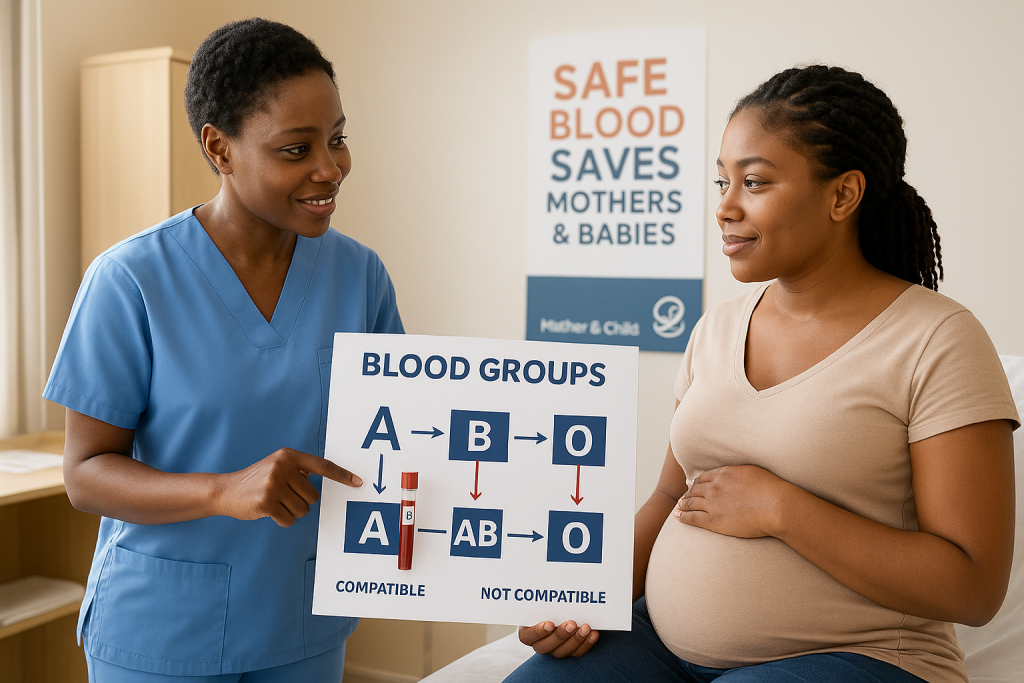Blood & Baby Series: Week 2 – Blood Groups and Cross-Matching in Pregnancy
Welcome back to our Blood & Baby Series. In Week 1, we discussed the Rhesus (Rh) Factor in pregnancy. This week, we focus on Blood Groups and Cross-Matching in Pregnancy , a critical step in keeping mothers and babies safe during childbirth and emergencies.
What Are Blood Groups?
Human blood is divided into four main groups:
- A
- B
- AB
- O
Each group is further classified as Rh-positive or Rh-negative, depending on whether the Rhesus factor protein is present.
Blood groups are important because they determine who can safely donate or receive blood.
Why Are Blood Groups Important in Pregnancy?
- During pregnancy and delivery, a mother may lose blood.
- If a blood transfusion is needed, doctors must ensure the blood given matches her group.
- Giving mismatched blood can cause serious reactions that put both mother and baby at risk.
Knowing your blood group early helps your care team prepare for emergencies.
What is Cross-Matching?
Cross-matching is a safety test doctors do before giving a blood transfusion.
It involves:
- Mixing a small sample of the mother’s blood with the donor’s blood.
- Checking under a microscope to see if the two samples are compatible.
- Only using blood that shows no reaction.
This ensures the blood given is safe and will not harm the mother.
When is Cross-Matching Needed?
- Before delivery, especially if there is a risk of heavy bleeding.
- During emergency situations, such as:
- Complications in labor
- Miscarriage or ectopic pregnancy
- Surgery (like caesarean section)
- For the newborn, if a baby needs a transfusion due to anemia or other conditions.
Key Takeaways for Mothers
- Ask your doctor about your blood group during your first antenatal visit.
- If you are high risk, your doctor may arrange to have blood on standby before delivery.
- Cross-matching ensures safety during emergencies, trust your care team to take these precautions.
Coming Up Next
In Week 3 of Blood & Baby, we will talk about Blood Donation and Transfusions for Newborns, why donations matter, and how they save tiny lives.
Stay tuned and share this knowledge with another expectant mother.


